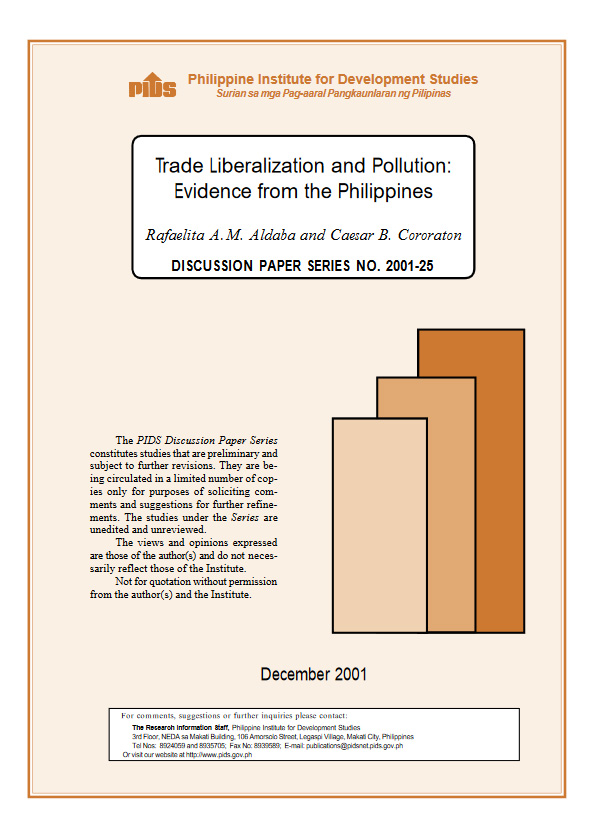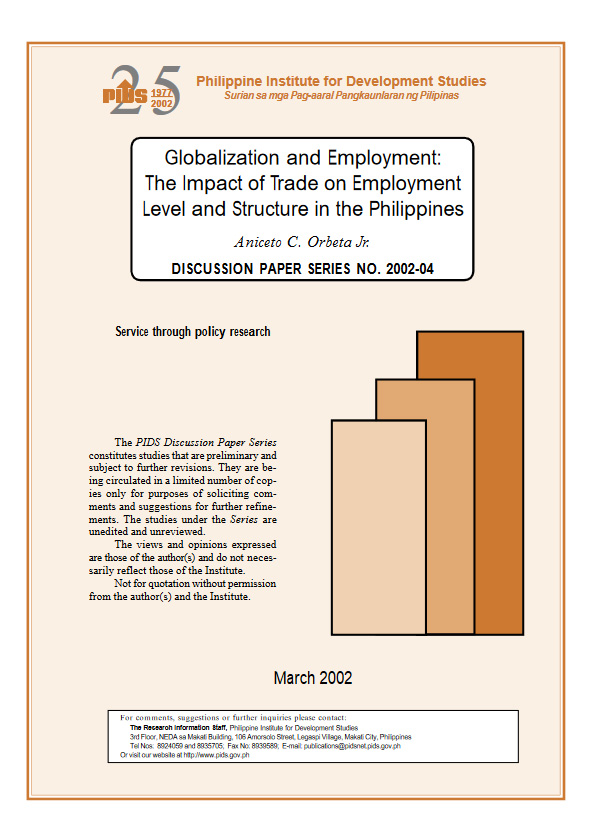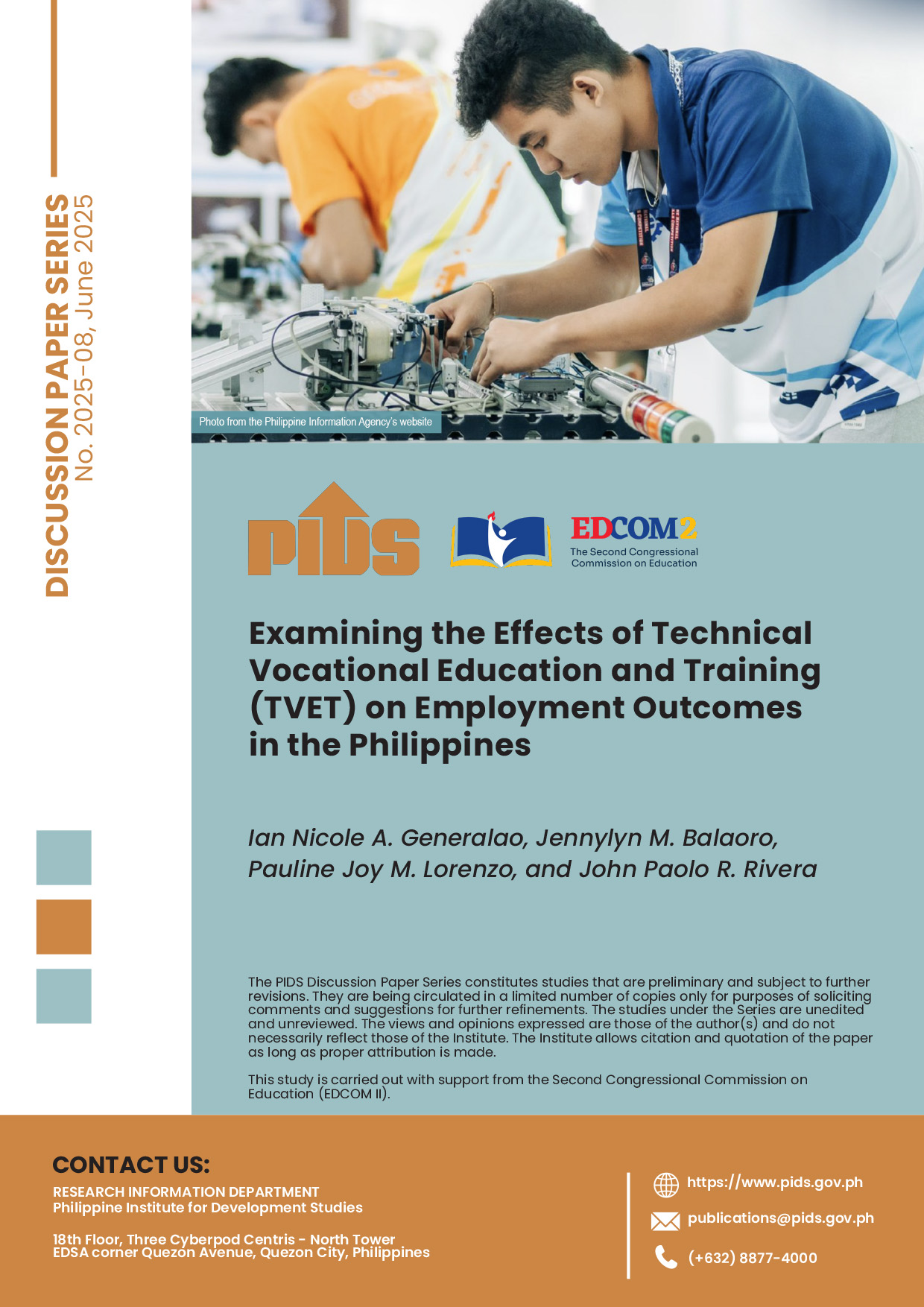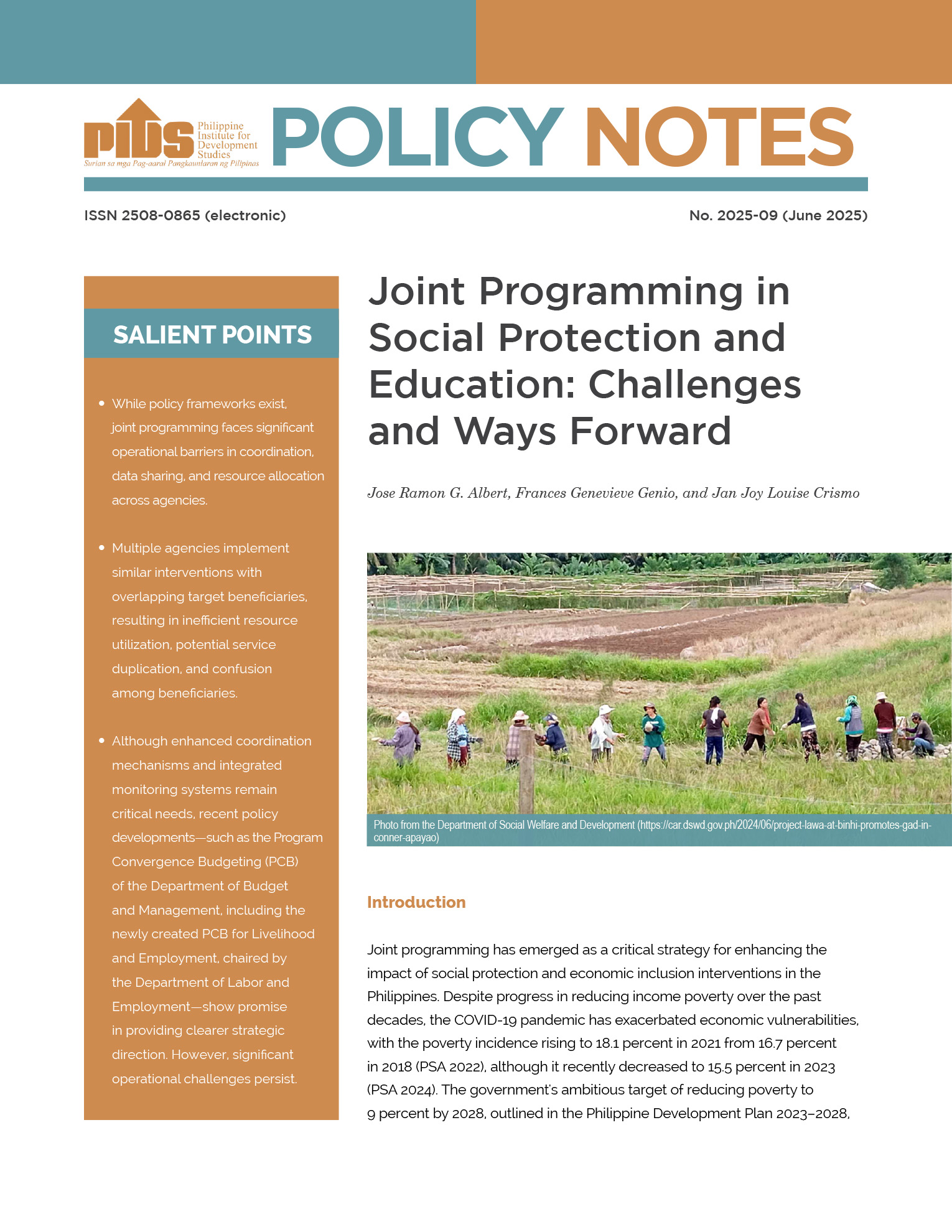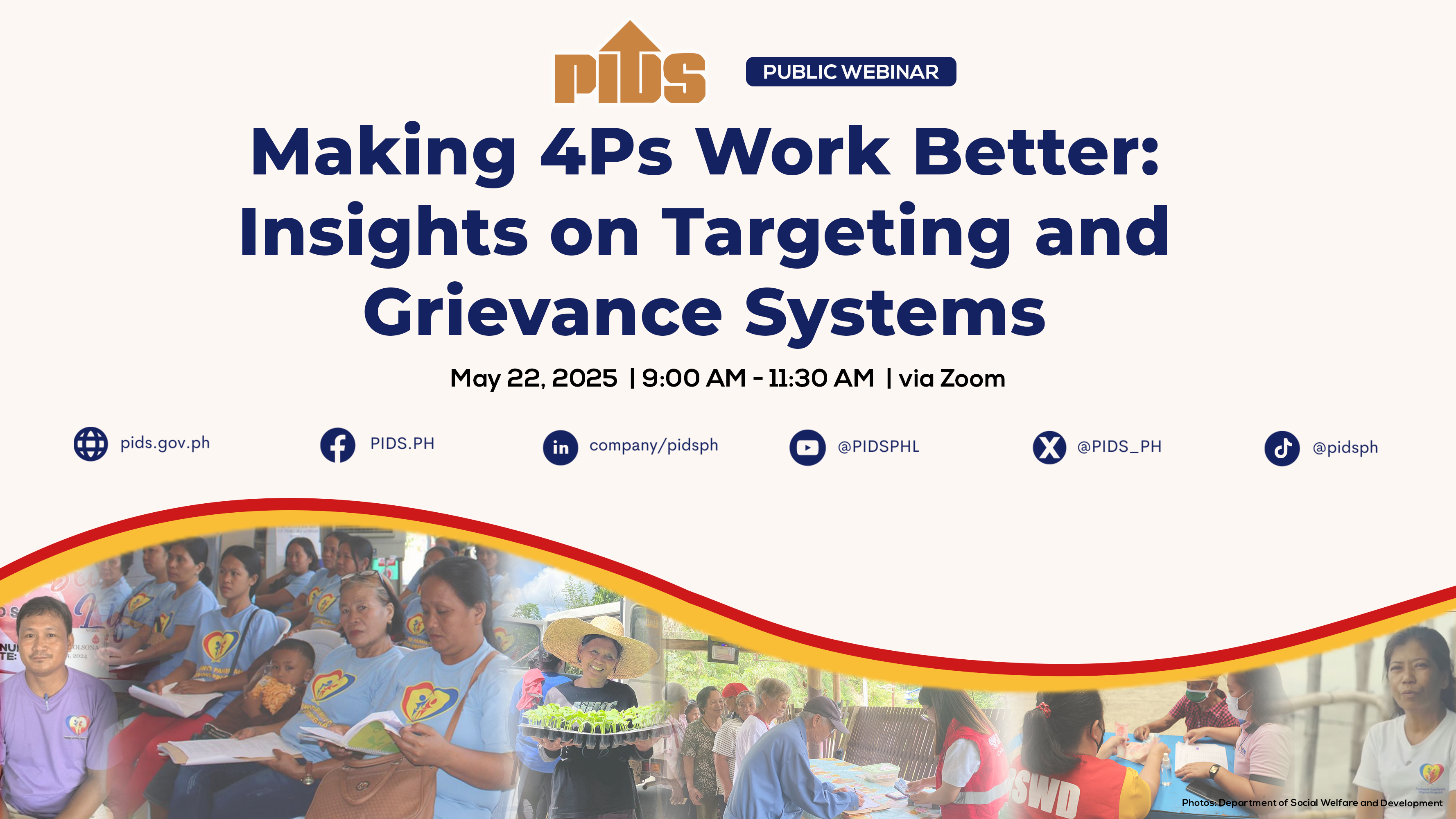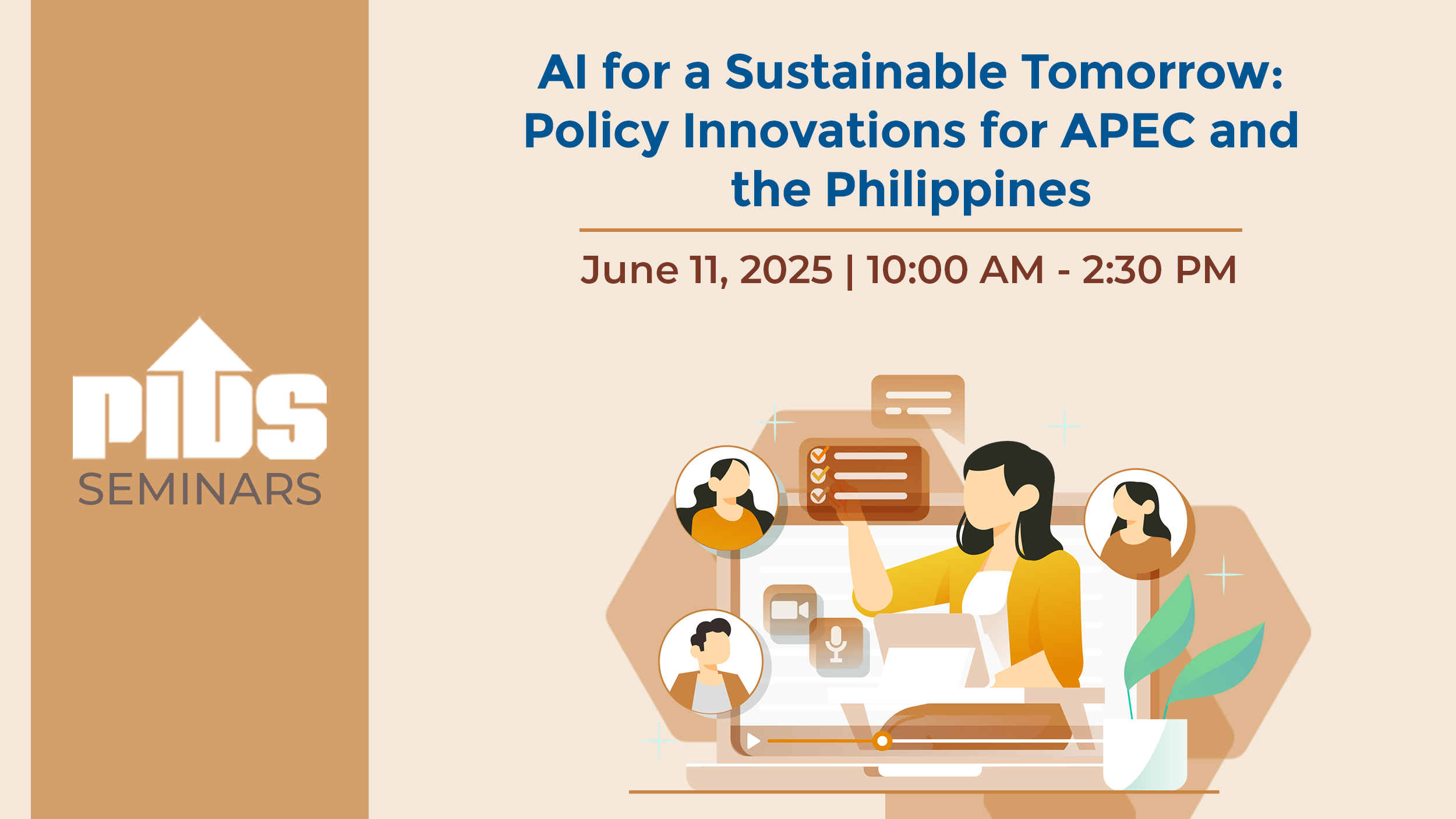The paper assesses the impact of trade reforms in the Philippines on pollution using CGE model simulations and two industry case studies on sugar milling and refining and cement manufacturing. Generally, trade reform is output augmenting and welfare improving. The overall impact on pollution is very small. Output taxes to reduce pollution are ineffective. They wipe out the potential gain from trade reforms. The case studies support the simulation results. Trade liberalization leads to more competition, improvements in efficiency, and increased foreign investment. All this increased environmental awareness. It accelerated the promotion and production of good environmental systems and adoption of ISO standards.
Citations
This publication has been cited 6 times
- Coxhead, Ian. 2002. . Staff Paper Series 455. University of Wisconsin, Agricultural and Applied Economics.
- Coxhead, Ian A.. 2002. . Staff Papers 12650. University of Wisconsin-Madison, Department of Agricultural and Applied Economics.
- Coxhead, Ian A. and Sisira Jayasuriya. 2003. . Staff Papers 12691. University of Wisconsin-Madison, Department of Agricultural and Applied Economics.
- Coxhead, Ian and Sisira Jayasuriya. 2003. . Department of Economics - Working Papers Series 884. The University of Melbourne.
- Coxhead, Ian and Sisira Jayasuriya. 2003. . Staff Paper Series 462. University of Wisconsin, Agricultural and Applied Economics.
- Hung, Pham Thai, Bui Anh Tuan, and Nguyen The Chinh. 2016. . EEPSEA Research Report rr2016042. Economy and Environment Program for Southeast Asia (EEPSEA).

